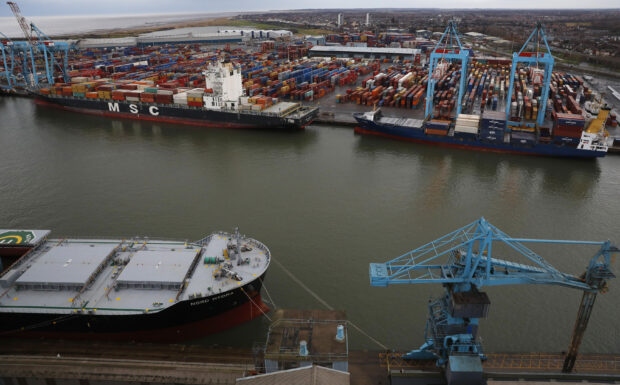
A container ship is unloaded at Peel Ports Liverpool container terminal in Liverpool, Britain Dec 9, 2016. REUTERS/Phil Noble/ File photo
LONDON -Britain said on Monday it would implement a new import carbon pricing mechanism by 2027, with goods imported from countries with a lower or no carbon price having to pay a levy as part of decarbonization efforts.
The government said the carbon border adjustment mechanism (CBAM) would apply to carbon intensive products in the iron, steel, aluminum, fertilizer, hydrogen, ceramics, glass and cement sectors.
The charge applied will depend on the amount of carbon emitted in the production of the imported good, and the gap between the carbon price applied in the country of origin – if any – and the carbon price faced by UK producers.
“This levy will make sure carbon intensive products from overseas – like steel and ceramics – face a comparable carbon price to those produced in the UK, so that our decarbonization efforts translate into reductions in global emissions,” finance minister Jeremy Hunt said.
READ: Britain’s economy shrinks as BoE readies new rates decision – ONS
“This should give UK industry the confidence to invest in decarbonization as the world transitions to net zero.”
Britain said it would help reduce the risk of ‘carbon leakage’, avoiding emissions being displaced to other countries because they have a lower or no carbon price. The CBAM will work alongside the UK Emissions Trading Scheme, it added.
In September, the European Union launched the first phase of a system to impose CO2 emissions tariffs on imported steel, cement and other goods, the world’s first. It will not begin collecting any CO2 emission charges at the border until 2026.
READ: EU seeks deal on world-first carbon border tariff
That planned tariff has caused disquiet among trading partners and at a recent forum, China’s top climate envoy Xie Zhenhua urged countries not to resort to unilateral measures such as the EU levy.